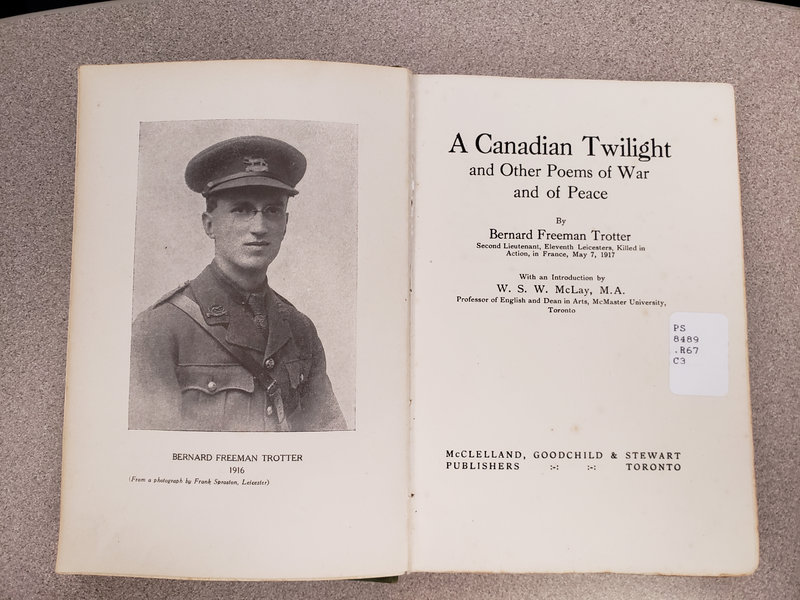Bernard Freeman Trotter
Bernard Freeman Trotter was 27 years old when he was killed by a falling German shell. These are his stories, his letters and his poems.
Born in Toronto, Ontario in 1890, Trotter commenced his undergraduate education at McMaster University prior to completing graduate education at the University of Toronto. Deemed unfit to serve by the Canadian Army, he pushed the British Army into giving him a commission. From December 1916 to his death in May 1917 Trotter served in the 11th Leicestershire Regiment in Europe. He quickly rose through the ranks due to his age and education, and as a second lieutenant he received servants and was in command of a divisional troop. His unit was essential to the logistics of the front - repairing damaged trenches, consolidating troops, and clearing any remaining German soldiers from the front.
A collection of his letters and personal artifacts resides in the William Ready Division of Archives and Research Collections at McMaster University in Hamilton, Ontario. The materials used in this work were accessed through the Canadian War Museum Letters and Images Project, in partnership with Vancouver Island University.
His stories and poems paint a somber picture of reality in the trenches; we see a stark difference in geniality in his first letters during his training and time with family in England from his final letter written in the trenches of the French countryside. His hope, glimmer of excitement, and romanticisation of war were very swiftly replaced with discussions of fear and the ease at which death can come on the front lines. Moved to the transport company shortly before his death, Trotter explained dodging shells on horseback was thankfully more exhilarating than frightening. In his final letter, he details his experience hearing the screech of artillery shells. This letter in particular highlights his fear and a notable difference in his perspective on death.
In addition to being an accomplished student and soldier, Trotter was also a published poet. He continued his practice during the war and his personal mentions of poetry provide an incredible window into his emotions. This exhibit tracks the influence war had on his art, through time and place.
